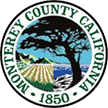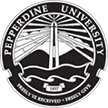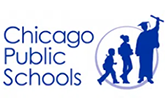Cal Interpreting & Translations (CIT) offers Duala interpreters and translators with legal, medical and specialty experience, including criminal and civil matters, employee meetings, engineering, patent cases, labor disputes, immigration and more.
Although based in Los Angeles, CIT offers comprehensive Duala language services including interpretation, translation and transcription, 24 hours a day, 7 days a week, worldwide. Our interpreters and translators are native speakers who have been screened, certified, have provided credentials, field tested, and kept up to date with developments in both English and the Duala language through means such as lectures, conferences, and travel. CIT’s Duala language interpreters and translators possess in depth knowledge of the Duala language, as well as of the culture and history of the Duala people, allowing them to provide informed and complete interpretation and translation.
The Duala language, also spelled Diwala, Douala (in French), Dualla, Dwala, Dwela and Sara, is a Bantu language spoken primarily by the people of Cameroon. It is ethnically a language of Douala, Mungo, spoken by approximately 2 million people worldwide. In 1982, it was estimated that around 87,700 people worldwide spoke the language. As one can see, the numbers have since grown quite sizably. It is part of the Niger-Congo family of languages, having approximately five dialects: Duala proper, Bodiman, Oli (Ewodi, Wuri), Pongo and Mongo (Muungo). The language is spoken in many regions, such as the Littoral region. The language is primarily spoken in southern Cameroon along with costal Cameroon and Equatorial Guinea.
Duala is the primary language spoken in the largest city in Cameroon. Duala is used for all forms of communication, such as media, business, trade and religious purposes. Duala is broken up into several classifications. They are as follows: Niger-Congo, Atlantic-Congo, Colta-Congo, Benue-Congo, Bantoid, Southern, Narrow Bantu and Northwest.
There are eight ethnic groups or tribes that make up the Duala people. They are: Bakole, Bakweri, Duala proper, Isubu, Limba, Mungo and Wovea.
The first time the Duala language appeared in writing was in 1862, when it appeared as a Biblical translation. In 1932, the orthography of the language was re-evaluated and changed. In 1979, the alphabet was made generalized with all languages spoken in Cameroon. The language of Duala is a tri-tonal language. There is a high tone, a low tone and a falling-rising tone.
Most of the Duala history is passed down from generation to generation orally. There are several myths as to where the Duala people originated. The Duala proper and the Limba trace their lineage back to a man named Mbedi. He lived in Bakota, which is known as Gabon or the Republic of Congo today. He had two songs, Ewale and Dibongo, who migrated to the north and reached Pitti, located on the Dibamba River. Ewale moved to the river area while Dibongo moved southeast to the Sanaga River. Ewala’s people became known as the Duala and Dibongo’s followers were known as the Limba.
The Duala proper were best known as leading traders on the coast of Cameroon, beginning in the 1500s. The village they came from, the Duala village, became quite prosperous and grew quickly.
The Duala people have been governed by the German, British and French. The British, notably, wanted to make the Duala people a more civilized group. They planed to do so through education and by converting them to Christianity. In 1844, Joseph Merrick convinced King William to let him open a church and school in Bimbia. A gentleman named Alfred Saker soon followed with a mission in Douala. Saker founded Victoria, known as Limbe today. In 1875, there were many missions and schools in Victoria. The missionaries learned the Duala language and helped invent writings, which they used to translate the Bible. Not long after, Victoria was home to many slaves who had been freed, working class and Duala people who had converted to Christianity.
Duala Society had been divided into three: the Wonja (native Duala who had complete rights to land), Wajili (non-Duala people or descendants of slaves) and lastly, the Wakomi (slaves).
The Duala people are known for their arts and hand-crafted materials, passed down from generation to generation. Bakweri are known to be very good in the skill of weaving hats and shirts. They also make cabinets, chairs and tables.
The Duala have a bright and lively musical and dance scene, which is displayed with their culture. Their musical style is Ambasse bey, which is a style of folk music. There are several purposes to their dances, such as a funeral and wedding dance. There are two major festivals that occur each year, where the Duala display their music and dance. During these festivals, all the people of Cameroon are invited to participate.


No matter what your needs may be, we can and are ready to assist you now. We have translators and interpreters standing by 24/7.

CIT's interpreter is such a rockstar, and it’s so great to have him as a lead interpreter for our Board meetings. About Our Interpreters 
Thank you for always being able to handle emergency interpreting assignments with ease. About Urgent Requests 
Thank you for always being able to handle emergency interpreting assignments with ease. About Urgent Requests 
Your translation rates are more competitive than other language service providers I used in the past. About Pricing 

Professionalism matters at CIT. We respond to request inside 24 hours.







